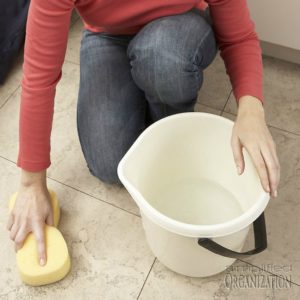 Summer is a great time to revamp the home systems and focus on those areas that tend to get brushed aside with the hustle and bustle of regular activities, homework, and schedules.
Summer is a great time to revamp the home systems and focus on those areas that tend to get brushed aside with the hustle and bustle of regular activities, homework, and schedules.
Of course the kids are looking forward to kicking back and enjoying more loose and freeform days. Summer should be a time for swimming, lemonade, and ice cream cones, but it’s also a great time to use the extra head-space and time-pockets to organize those bothersome corners and practice the routines that will make your next school year run more smoothly.
And what would help make it run more smoothly than teaching the kids to pitch in a little more and a little better?

Here are three avenues of attack to use this summer to get a system for your kids’ chores up and running so they can pitch in more with the daily maintenance of the household.
Instruct them in household chores
Children don’t intuitively know how to do work around the house, and teaching the oldest will not magically and intuitively teach the younger ones.
During the summer, set aside some time to teach each child how to do one or two basic household chores. Some of the jobs my children have done over the year include:
- Empty the dishwasher
- Empty bathroom garbages into the kitchen garbage
- Take the kitchen garbage out to the outdoor garbage can
- Wash the table & counter after meals
- Vacuum the stairs
- Clean a bathroom
- Fold kitchen towels
- Organize the plastic drawer
The first step in training a child to do chores is simply to have them watch you do it, while you talk through what you’re doing. Doing this several times would probably be good, but my kids haven’t had the patience for that. They want the spray bottle in their hands.
So, when you give them that spray bottle and rag, stay close by and talk through it while they do it. Make sure they understand what “complete” means for their job; in my experience, this appears to be a difficult concept for them to grasp.
Walk them through the steps to complete the chore, advising them at least 3 times, but a full week is better.
The final step is to have them talk through the job as they do it. If they can repeat the instructions as well as follow them, then at least you know they were listening and have the knowledge in their heads somewhere (which might be good evidence to bring up later).
Usually, the way we go about teaching chores or setting up a new system undermines our efforts from the beginning. We often remake our whole system all at once, which means three or more new trainees at once. This makes the training stage particularly difficult because, turns out, we can only be in one place at a time.
So rather than implement a new plan all at once, implement one child’s changes per week. Pick one child to begin with and spend the week in intensive training with that one only. Then move them to the supervising stage and bring in the next for training. It feels like a long stretch and slow going, taking baby steps and building up slowly is always a good strategy in the long run.
Inspire them for housekeeping chores
If there is to be a chore system, there must be an accompanying set of consequences that everyone is clear about and parents are consistent with. Without consequences, there is no reason to do a thing or not do a thing. Because children are rarely motivated by the consequence of having a clean room or a clean bathroom, we must add other consequences to inspire motivation and responsibility.
Usually we assume consequences are negative, but I try to include and emphasize positive consequences for a job well done. Some of the positive consequences I have used are
- Payment
- Privileges (we work before we play)
- Snack (we work before we eat)
Negative consequences are necessary also, however. If you have a go-to response to fall back on when jobs are not done, then you will be less tempted to simply yell or fuss ineffectively. Give the consequence, stick to it, and don’t get mad – that’s the most effective way to deal with the inevitable times a child does not do his chores.
Some negative consequences I have used are
- Redo the job until it is satisfactorily completed
- No screens or friends before work
- Extra work for bad attitudes or badly done work
- Paying me or a sibling to do the job instead
Personally, I prefer the “more work” option – I like to tell them that they clearly need more practice.
More than consequences, the best way to inspire kids to do their work is to give them some ownership in the process. List out the chores that need to be done, highlighting the ones they are capable of. Giving them a choice, even if it’s only between two, allows them to exercise responsibility and decision-making, which increases their sense of ownership of the job.
Inspect their chores quickly
There is no way around it: We must inspect what we expect.
For at least one week and probably more like a month, you’ll need to check on them while they are working and keep an eye on the process.
This is difficult when you have multiple workers working at once, but I have found that if I am doing things that keep me moving, I can cast an eye on each child a few times and make sure they’re on track. Plus, if they know Mom is likely to pop in at any moment, they are less tempted to shirk their duties.
Unfortunately, you never do graduate out of needing to check on kids’ work. As soon as you stop checking, you’ll find things begin to slip. This is true with chores, with math homework, with writing, with anything challenging you have assigned. Everyone defaults to easy – which means without proper motivation (such as having your work checked and having to redo it if it’s not done well), corners are cut, effort is not applied, and self-justifications are multiplied.
So build in chore-checking to the routine, and you’ll find that your chore system will stick longer and improve more and more over time as your consistency grows.

